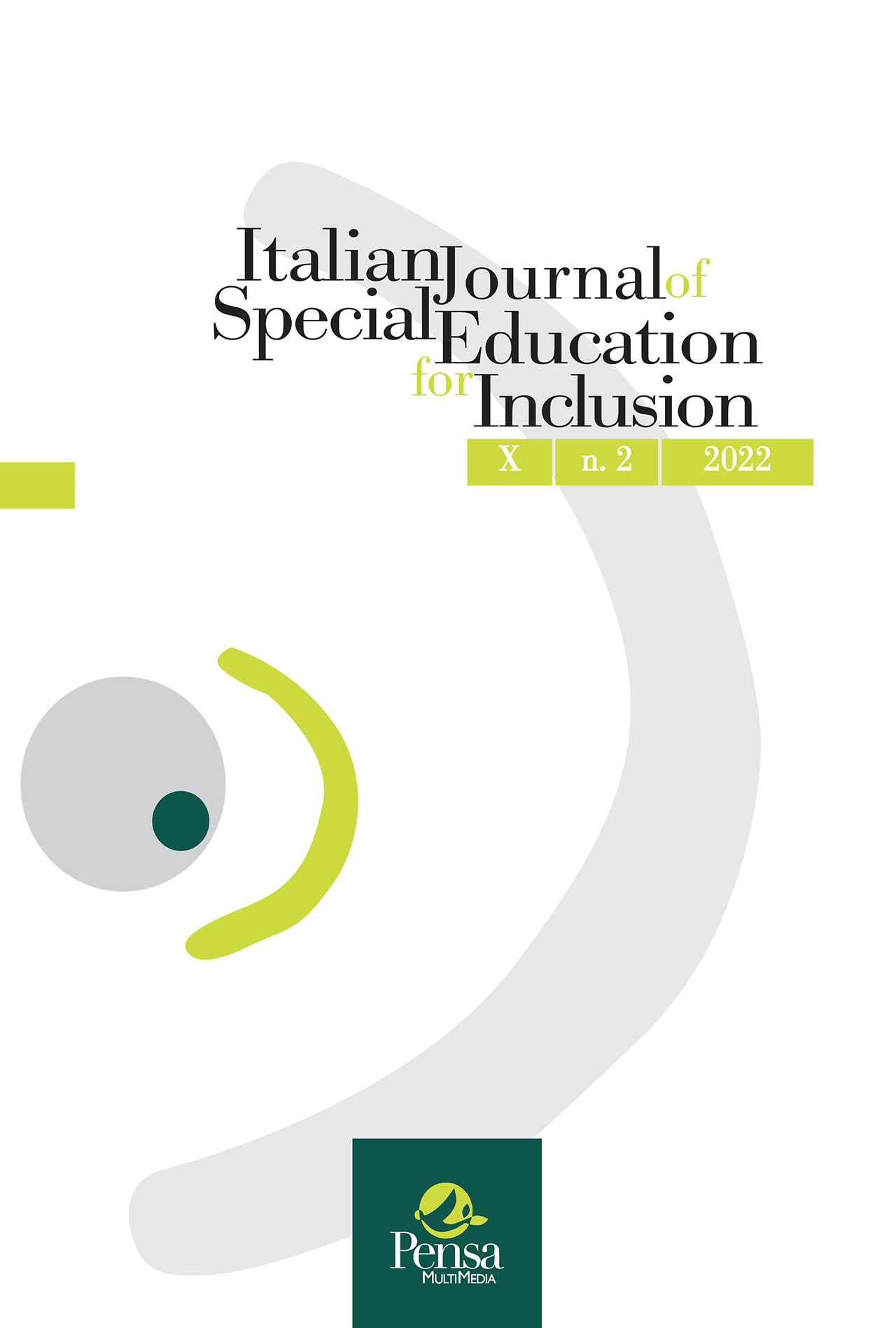English The narrative approach and its possible declinations in Special Pedagogy: theater as lan guage and inclusive context
DOI:
https://doi.org/10.7346/sipes-02-2022-17Abstract
With the contribution of narrative-autobiographical practices, the person with "educational-special needs" gradually learns to accept himself with his own strengths and weaknesses: the complex existential situations connected to the conditions of deficit, marginalization, discomfort and suffering emerge from the darkness characterizing the reductive and stigmatizing logics of indifference, devaluation and forgetfulness. The narrative language thus becomes an authentically formative and inclusive place because it allows each person to think and design innovative possibilities of existential redemption: the narrative represents a practice of educational care when it puts the "different" in the condition of re-seeing, re -generate, re-organizing the most significant sense of individual history, in order to think about the future. The use of a wide range of methods, tools and narrative languages, as in the case of theatrical narration, allows the most fragile and vulnerable subjects to regain voice and full rights of participation and citizenship within micro and macro social systems of belonging.


